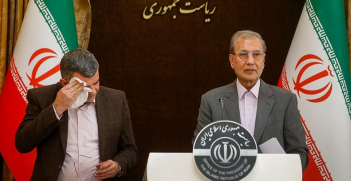A New Leader and a New Direction for Britain’s Labour Party

Britain’s opposition Labour Party has elected Sir Keir Starmer to replace Jeremy Corbyn and begin the daunting challenge of reversing Boris Johnson’s 80-seat majority in the House of Commons. For now, Starmer is committed to working together with the Johnson government to see the UK through the pandemic.
Starmer, formerly shadow Brexit secretary, had a convincing victory with over half of party members’ support. After party talk in recent times has focused heavily on the idea of choosing its first woman leader, members opted for another London man with solid establishment credentials that might sit uneasily in the areas of the country that rejected Labour in last year’s election.
An acclaimed international human rights lawyer and authority on European law, Starmer is in many ways the antithesis of many of Corbynist beliefs. Starmer, aged 57, and married to another successful lawyer, will immediately face one task that stands far above the many others: figuring out how to fashion and reshape a left-of-centre political movement that has watched aghast as the Johnson government has used the coronavirus epidemic to steal Labour’s clothes. With the House of Commons suspended for the immediate future, the opposition has fallen largely silent, and Starmer will not only have to restore his party’s morale, rebuild its shadow ministry, and replace key officials, he will also have to define policies that distinguish it from the government. One of his first actions was issuing an apology for the “stain” of anti-Semitism that has tainted Labour in recent years, pledging to “tear out this poison by its roots”.
How the UK is coping
Apart from adopting some of Labour’s signature economic policies and creating world-leading social measures of their own, the Conservative administration has achieved in just three months what many of its own supporters believed was unachievable by uniting the country in a declaration of war against COVID-19, “the unseen enemy.” “Together we will get through this and emerge stronger”, is the cry of Prime Minister Johnson, holed up and isolated in his bed-sitter in 11 Downing Street. Meanwhile, next door in Number 10, harassed colleagues attend to the nation’s business, communicating with him and the outside world by video conferences. Those similarly isolated, afflicted with the virus, include the country’s chief medical officer, two other ministers, the Brexit trade negotiator, and Johnson’s confidant and chief adviser, Dominic Cummings. Matt Hancock, the health secretary, has recovered from COVID-19 and is back at work.
Johnson has not been beyond criticism for his faltering response to the Coronavirus since it first emerged in Wuhan, China, not least because of a failure to follow World Health Organization guidelines to “test, test, test.” This problem has come about mainly because of a dire shortage of testing kits. Another problem is a shortage of ventilators.
However, the UK government’s political hero is Rishi Sunak, only a few weeks into his job as chancellor of the exchequer and member of the G7 group of finance ministers. He announced a generous financial package for all employees earning less than £50,000 a year who have been laid off by their firms since March 1. They are to receive a regular payment of 80 percent of their wages, with the monthly amount capped at £2500. Under criticism for ignoring Britain’s five million self-employed workers, Sunak took just two weeks to come up with a similar scheme for this group, which includes everyone from plumbers and electricians to barristers and actors, with payments to be made automatically by tax authorities based on an average of workers’ recent tax returns. Sunak has taken a variety of other measures, such as printing more money to enable banks to lend to companies in trouble, underwriting loans for those who might fail to meet lenders’ normal conditions, ordering local authorities to waive local business taxes, and forcing landlords to avoid evictions and terminations of leases for at least three months. Frances O’Grady, leader of the Trades Union Congress, the bedrock of Labor’s funding and support, has spent much of her working time in discussions with Sunak, and describes him as someone who is “smart, energetic and who listens.”
Apart from ameliorating the impact of the virus on Britain’s workforce, Sunak has adopted some of the policies that Labour has been advocating. Rather than bailing out the assortment of corporations that run Britain’s railways, which are suffering huge losses because of a decline in passenger numbers, Sunak has brought them, for the time being, under government control, a significant step towards renationalising them. Sunak has also promised to spend “whatever it needs” over the £145 billion it costs to run the National Health Service in England alone, increasing by a wide factor the amount pledged by Labour.
The chancellor has so far refused pleas by the airlines for a bail out. Ryan Air, Europe’s biggest carrier, has stopped flying altogether, as has its low-fare rival Easyjet. British Airways has grounded most of its fleet and furloughed about 30,000 of its staff. British Airways may get help, but there have been strong hints from Treasury that it will be at a price: a government shareholding.
Starmer’s role going forward
Apart from fighting a government that has been pursuing what could be seen as left-wing policies, acquiring a debt burden that will inevitably lead to higher taxes, Starmer has another burden to shake off. In the three years of UK political turmoil over Britain’s future with the European Union, he has been, as shadow Brexit secretary, a resolute Remainer. In the two and a half months since the UK formally left the EU, Brussels has not shown itself to be effective in leading the fight against the pandemic. Rather it has been national actions, particularly by France, Germany, and the UK that have set the pace.
So how will Starmer fare? In some ways he is an unusual choice. He lacks the passion and oratorial skills of some of his predecessors, notably Tony Blair. He is a measured man, as might be expected of a lawyer and former public servant who headed the Crown Prosecution Service, for which he was knighted. He has pledged bipartisan support for the Johnson government’s economic policies to tackle the epidemic’s impact on British life, while probing what appears to be its failure to carry out testing. He will prey on Johnson’s rhetoric and failure sometimes to grasp essential details.
Unlike his predecessor, Starmer, whose toolmaker father and nurse mother christened him Kier in honour of Labour’s first leader, is a pragmatist. He will dump some Corbanist policies and will use his considerable skills working with, not just against, those with whom he disagrees. As Nick Robinson, a BBC political commentator, put it “he must show he has learned not just the politics of the backroom, how to win arguments and build alliances inside the House of Commons, and with the trades unions and committees that shape Labour’s policies; he must find the rhetoric, the passion to challenge one of the most successful political communicators of the modern age.”
And he will hope that Johnson will win the “war” against the coronavirus, remembering what happened to Britain’s hero of 1944, Winston Churchill, who emerged victorious but then saw his exhausted nation opt for the alternative: the reforming Clem Atlee.
Colin Chapman is a writer, broadcaster, and public speaker who specialises in geopolitics, international economics, and global media issues. He is a former president of AIIA NSW and was appointed a fellow of the AIIA in 2017.
This article is published under a Creative Commons License and may be republished with attribution.





